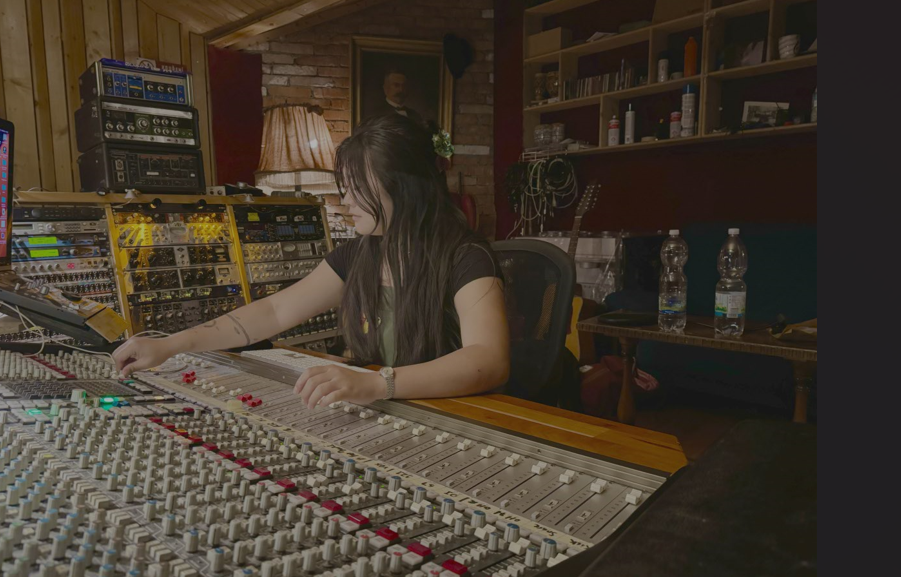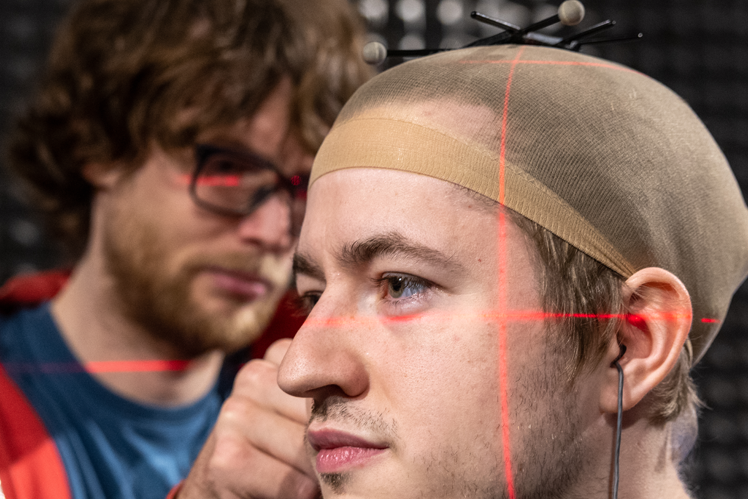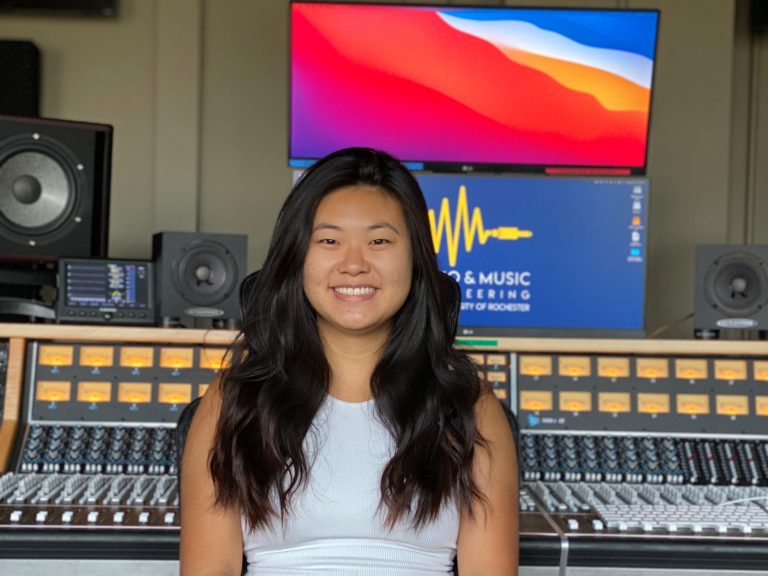In Profile: Jessica Luo
Jessica Luo recently joined the SONICOM team as a Research Engineer at Sorbonne Université in France, where she performs research investigations focusing on AR/VR, architectural acoustics and and sound perception in Space. Hailing from America, Jessica holds her Master of Music in Music Technology from NYU and a Bachelor of Science in Audio and Music Engineering from the University of Rochester.
 Connect with Jessica on LinkedIn | More about Jessica on her website and ResearchGate
Connect with Jessica on LinkedIn | More about Jessica on her website and ResearchGate
Work and career
1. What are you working on in SONICOM: in the past, now, or soon?
I am working on sound source localisation in VR, currently focusing on training on different HRTFs and distinguishing between real and virtual sources.
2. Did you have a role model that influenced your career pathway?
My dad has definitely influenced my career pathway. He is a researcher and scientist in material science.
3. What is your scientific background?
I have a Bachelor’s degree in Audio and Music Engineering from the University of Rochester (UR) and a Master’s degree in Music Technology from New York University (NYU), both from the US.
4. How did you choose your field of study?
I grew up doing synchronised/artistic swimming and was always tasked with editing and mixing our routine music. Doing that and playing piano and flute definitely primed me for going into audio engineering.
5. Why did you choose to become a scientist?
I was always curious about the “why” of everyday life. My first dabble into research was a NSF-funded research project over the summer with one of my undergraduate professors on binaural audio quality, and I was hooked from then on.
6. What are your biggest achievements, and what are your biggest failures?
I feel a great sense of achievement whenever a submission of mine gets published, especially with a journal article as my first publication in the field. Regarding failures, I am quite introverted, so it can be overwhelming for me at conferences, but I do my best to connect with people.
7. What is a typical day like for you?
Every day is different depending on where I am on my projects, but I found out that I do my reading/writing work best in the morning, while doing more hands-on work in the afternoon, so I try to follow that structure the best I can.
8. What are the hardest parts related to your work?
I love having multiple projects to switch between for my focus, but it can become a double-edged (or multi-edged) sword when I have to figure out task prioritisation along with work/life balance.
9. Did you ever doubt your abilities as a scientist? Why? How did you handle these situations/feelings?
Yes. As an early-career scientist in such a niche field, I find myself with imposter syndrome all the time as new discoveries are made. When I have these feelings, I sit with them to distinguish what is rational and what isn’t, and focus on action items to help ease them.
10. What (or who) motivated you in difficult times?
My family, I have them on speed dial.
11. In ten years, what do you hope to have accomplished in terms of your work?
I hope to have contributed to the field with findings that improve the aural experience in VR/AR with immersive audio.
12. During your career, have you been specifically mentored or supported by someone? I’ve had the privilege of meeting many experts in the field who have taken me under their wing both in industry and research, ranging from Birmingham, UK, during my semester abroad to my higher education in the States (UR and NYU).
13. What is the funniest or most memorable thing that has happened to you while working in science?
The memories I carry are definitely the jokes that arise during collaboration. Whether it’s staying late in the lab working on analysis or stuck performing experiments in silence, my project partners and I always become closer (and sillier) during that shared time together.
On being a woman in science
14. How do you feel the current environment is for women in science
I feel that the current environment still needs a lot of progress. There are definitely improvements being made for more inclusion, but more needs to be done. I feel that more discussions can be had at these international conferences to promote collaboration, mentorship, and connection.
15. Where do you see women in science in 10 years?
I hope to see the ratio of women to men in science grow. I want to see the number of people approaching female presenters/experts be equal to their male counterparts at conferences. Most of all, I hope to see successful support systems and collaborations that promote underrepresented populations.
16. What were the biggest obstacles you had to overcome? Did you ever have the
impression that it would be easier/harder if you were male?
I have consistently faced underestimation or doubts in my ability in the field, especially from male peers in my environment. I definitely think this wouldn’t be the case if I were male, explicitly seeing this happen to my male counterparts, or the lack thereof.
17. What kind of prejudices, if any, did you have to face? How did that make you feel?
Were you able to overcome these?
I’ve been questioned on the validity of my work, requiring extra preparation to explain why. It’s tiring, but unfortunately, reality. Overcoming this is a process – sometimes I’m on top of the world, and others I’m in a terrible funk. I just try to take steps to feel reassured and confident.
18. In your opinion, which changes, if any, are needed in the scientific system to engage
more women in science and create more future female scientists?
Implementing changes that don’t punish but support women for their bodies and ways of thinking would create a safer space for women to pursue their careers. Promoting opportunities that encourage women to support and uplift each other, rather than seeing each other as competition/threats, would create a better environment.
19. Do you have anything else that you’d like to say to young, female audiences?
You are smart and fully capable of everything you want to do. If someone or something tells you you can’t do it, prove them wrong (healthily and legally, of course).
Outside the lab
20. Do you come from an academic family?
Yes.
21. Besides your scientific interests, what are your personal interests?
I enjoy climbing, swimming, hiking, and biking. At home, I also play my instruments for fun and write/engineer music with my band.
22. Is it hard to manage both a career and private life? How do you manage both?
Most days, I can log off both physically and mentally at EOD, but sometimes there can be something that’s still thinking/running, depending on the project or deadline. I do my best to balance work and personal life by doing one thing a day that’s fully for my enjoyment.
23. If you had the option to give advice to a younger version of yourself, what would that
be?
Relax, everything will be fine. Do your best, try your hardest, but listen to your body, it always knows best




